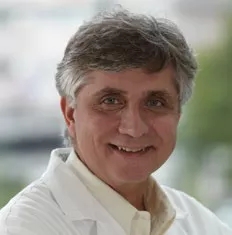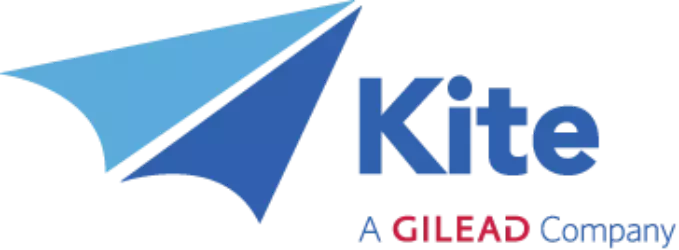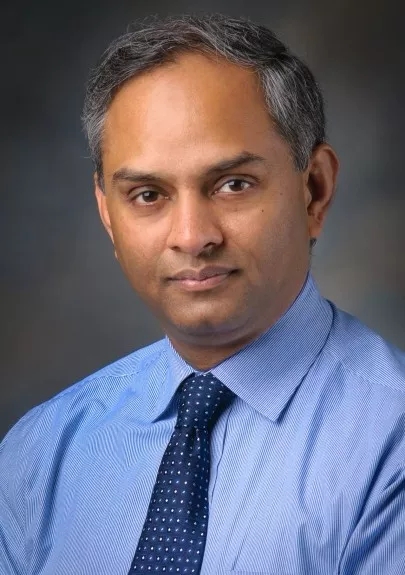The latest research progress of two major CAR-T therapies December 13, 2017 Source: WuXi PharmaTech Recently, at the 59th Annual Meeting of the American Society of Hematology (ASH) in Atlanta, Novartis and Kite Pharma, the two leading providers of CAR-T therapy, presented their latest research data. The latest research progress of the first Kymriah listed this year and the second listed Yescarta, let us take a quick look! Company Name: Novartis CAR-T therapy name: Kymriah (tisagenlecleucel, formerly known as CTL019) Therapeutic area: relapsed or refractory (r / r) diffuse large B-cell lymphoma (DLBCL) Novartis presented the latest research data from its CAR-T therapy Kymriah's JULIET clinical trial at the AHS Annual Meeting: Relapsed or refractory (r / r) diffusely large in 6 months Patients with B-cell lymphoma (DLBCL) achieved sustained remission. The data showed that the patient's overall response rate (ORR) was 53%, 40% of the 81 infusion patients achieved complete remission (CR), and 14% achieved partial remission (PR). After 6 months of infusion, the ORR was 37% and the CR rate was 30%. The median duration of remission was not met. Kymriah is the first gene therapy approved by the FDA in August this year. It is also the first CAR-T therapy approved in human history. It is used to treat acute lymphoblastic leukemia (ALL) of B cell precursors, and the condition is refractory, or two Secondary and above patients who have relapsed under 25 years of age. In addition, in April this year, Kymriah received a breakthrough treatment from the US FDA to treat relapsed or refractory (r / r) diffuse large B-cell lymphoma (DLBCL). JULIET is the first multicenter globally registered Kymriah treatment for r/r DLBCL in adult patients. The trial was conducted in collaboration with the University of Pennsylvania and recruited patients in 27 locations in 10 countries including the United States, Canada, Europe, Australia and Japan. The data showed that in the third month, the CR rate was 32% and the PR rate was 6%, which was consistent with the sixth month (30% CR, 7% PR). The rate of remission between the subgroups of prognosis was also consistent, including patients who underwent autologous stem cell transplantation (ASCT) and patients with DLBCL subtypes (called double-hit lymphoma), all of whom had historically had poor prognosis. No patients received stem cell transplantation after receiving Kymriah treatment. In the JULIET study, the probability of recurrence within 6 months after the first remission was 74% (95% CI, 52%-87%) and the median duration was not met. The median overall survival was also not met (95% CI: NE was 6.5 months [not estimated]), and the median time from infusion to data cutoff was 5.6 months. In terms of safety, 58% of all treated patients developed cytokine release syndrome (CRS) after activation of cells in the body, and 23% of patients experienced grade 3/4 CRS (15% grade 3; 8% level 4). Any level of neurological adverse events occurred in 21% of patients, and 12% had grade 3/4 neurological adverse events. In 27%, 20%, and 13% of patients, respectively, grade 3/4 cytopenia, grade 3/4 infection, and grade 3/4 febrile neutropenia continued for more than 28 days. ▲ Dr. Stephen J. Schuster (Source: University of Pennsylvania's Perelman School of Medicine) Principal Investigator of the JULIET trial, Professor of Clinical and Research in Chronic Lymphocytic Leukemia and Lymphoma of the University of Pennsylvania's Perelman School of Medicine, Professor Robert and Margarita Louis-Dreyfus, Director of Lymphoma Program at Abramson Cancer Center Dr. Stephen J. Schuster said: "During the trial, these patients with DLBCL have undergone multiple rounds of chemotherapy, and many patients have failed stem cell transplantation, making their treatment options few and the prognosis is poor. With the use of tissuelecleucel, we have been able to Significantly improve their chances of achieving and sustaining sustained remission without the need for stem cell transplantation, demonstrating the benefits of this therapy in treating this fatal blood cancer." Dr. Samit Hirawat, Head of Global Drug Development, Novartis Oncology Division, said: “Although immediate relief from treatment is a hallmark of efficacy, patients and physicians need a consistent treatment regimen with consistent safety. We look forward to continuing with the health sector. Collaborate to bring Kymriah to patients with relapsed or refractory DLBCL." Company Name: Kite Pharma CAR-T Therapy Name: YescartaTM (axicabtagene ciloleucel) Therapeutic area: relapsed or refractory large B-cell lymphoma (DLBCL) Kite Pharma presented long-term, follow-up data from the ZUMA-1 clinical study at the ASH Annual Meeting. Data showed that in patients with refractory large B-cell lymphoma 1 year after a single intravenous infusion of Yescarta (median follow-up time of 15.4 months), 42% of patients achieved sustained remission, with 40% achieving complete remission. Yescarta is the second CAR-T therapy approved by the US FDA in October this year to treat adult patients with certain types of large B-cell lymphoma and is the first CAR-T therapy for specific non-Hodgkin's lymphoma. These patients had received at least two other treatments, but there was no remission or a recurrence of the disease. Diffuse large B-cell lymphoma (DLBCL) is the most common non-Hodgkin's lymphoma in adults. It is estimated that there are approximately 72,000 new Hodgkin's lymphomas in the United States each year, one third of which is DLBCL. To assess the tolerance of Yescarta remission, patients who participated in the ZUMA-1 study (n = 108) were followed for at least one year. In the latest analysis, 82% of patients had a remission of Yescarta, and 58% achieved complete remission. The median time after infusion was 15.4 months, and 42% of patients continued to remission, with 40% of them completely relieved. The median duration of response was 11.1 months (95% CI: 3.9 months to unpredictable [NE]); median duration of response was not achieved in patients who achieved complete remission (95% CI: NE). Median overall survival (95% CI: 12 months to NE) had not been achieved, with a overall survival rate of 52% at 18 months (95% CI: 41 to 62). In the updated analysis, 12% of patients experienced grade 3 or higher cytokine release syndrome (CRS) and 31% experienced neurotoxicity, respectively. The most common grade 3 or higher adverse events were neutropenia (79%), anemia (45%), and thrombocytopenia (40%). Ten patients had serious adverse reactions 6 months after the Yescarta infusion, and 8 of them were infected. No new CRS or neurological events associated with Yescarta were observed in the updated analysis. ▲ Dr. Stephen J. Schuster (Source: University of Texas MD Anderson Cancer) Dr. Sattva S. Neelapu, Ph.D., Professor of ZUMA-1 Clinical Trial, Professor of Lymphoma/Myeloma Department of Cancer Medicine, University of Texas MD Anderson Cancer, said: "Long-term follow-up of ZUMA-1 Confirmed that the efficacy of Yescarta is sustained. With the current treatment, the median survival of this cancer patient is only 6 months. With Yescarta, we see more than half of the patients in the treatment year. Still alive." Dr. David Chang, Head of Global R&D and Chief Medical Officer of Kite Pharma, said: "Historically, patients with refractory large B-cell lymphoma have not been adequately treated. Persistence has occurred after more than a year of Yescarta treatment of patients. Relief has inspired us, which represents an important advance in the treatment of this refractory disease." Reference materials: [1] Novartis official website [2] Primary analysis results from Novartis pivotal JULIET trial show Kymriah(TM) (tisagenlecleucel) sustained complete responses at six months in adults with r/r DLBCL, a difficult-to-treat cancer [3] Kite Pharma's official website [4] Kite Announces Long-Term Data From Pivotal ZUMA-1 Study of YescartaTM (Axicabtagene Ciloleucel) in Patients With Refractory Large B-cell Lymphoma Original title: A glimpse! The latest research progress of two major CAR-T therapies Frozen squid tubes are a seafood product that has been cleaned, skinned, and cut into cylindrical shapes. They are typically sold in bulk and are a popular ingredient in many seafood dishes. Squid tubes are versatile and can be cooked in a variety of ways, including grilling, frying, boiling, and baking. They are often used in dishes such as calamari, stir-fries, and seafood stews. Frozen squid tubes are convenient for home cooks and are also commonly used in restaurants and other food service establishments. Zhoushan Fudan Tourism CO., LTD , https://www.fudanfood.com



The latest research progress of two major CAR-T therapies
